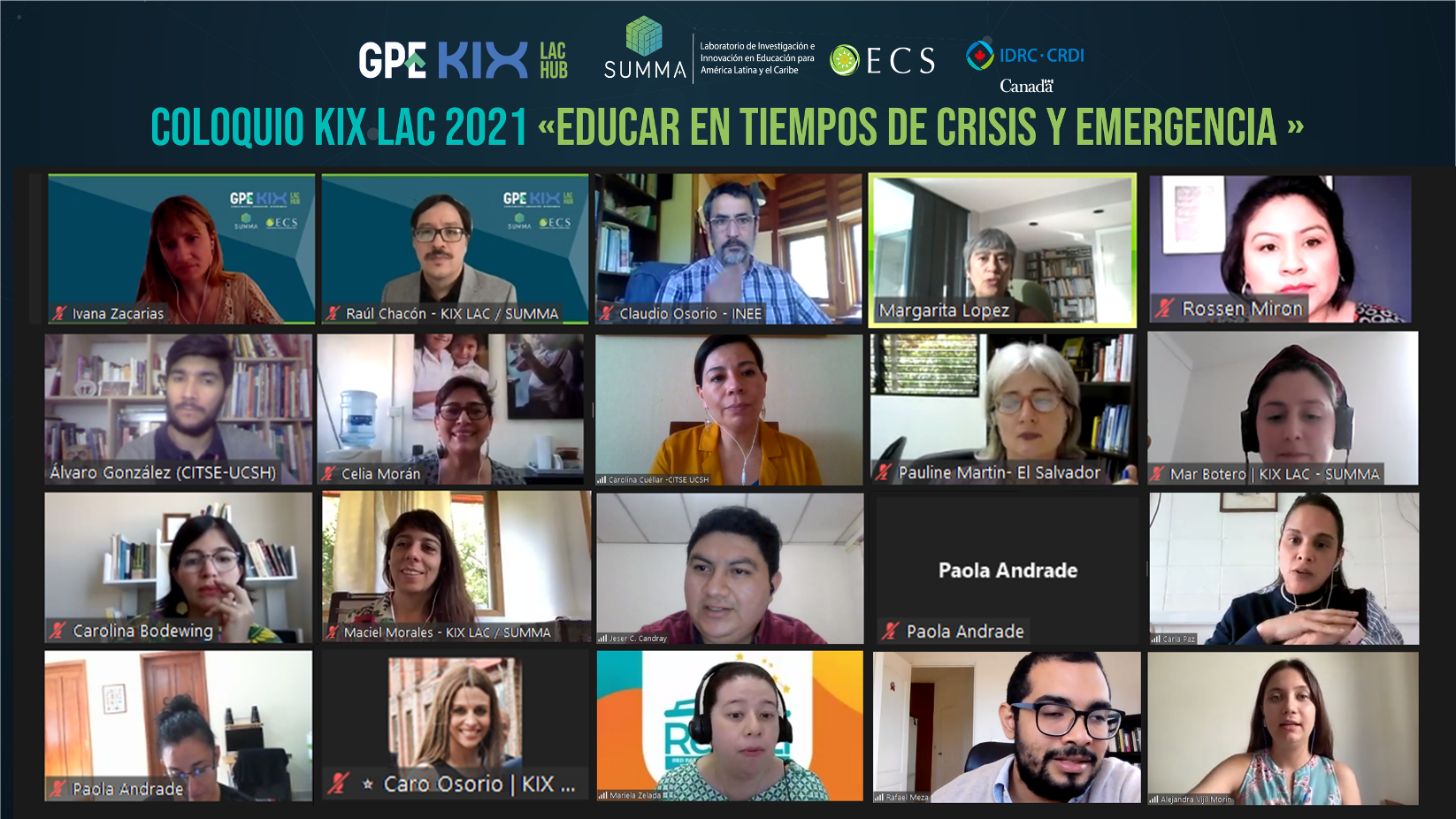
On December 9, 2021, the first KIX LAC Conversations, organized by SUMMA, the OECS, and with the support of IDRC, aimed to create a space for reflection and gathering around the various ways in which countries have responded to educational challenges in times of crisis, whether environmental, health, migration, gender, social or political.
The first panel, “Articulation between investigation and action. The right to education in emergency and crisis situations” was led by Raúl Chacón and Maciel Morales Aceitón from the Knowledge and Innovation Exchange Hub for Latin America and the Caribbean, KIX LAC – SUMMA, who highlighted the different educational contexts and political partners of Central American countries and the importance of generating evidence, mobilizing knowledge and experiences resulting from the work carried out by the countries, especially in times of emergency and crisis.
Claudio Osorio Urzúa, representative of the Inter-agency Network for Education in Emergencies – INEE – presented the “International Framework and Resources to ensure the Right to Education in Emergency and Crisis situations”, reaffirming the essential contribution of researchers to discover what is being done in each of our Latin American countries.
Next, four presentations from the first discussion table “Methodologies and Strategies in the Classroom” were given:
- Educational Mentoring as a Tool for Stress Management in Times of Crisis. By Carla Paz Delgado of the Centro de Investigación e Innovación Educativas UPNFM, Honduras.
- Innovation Locally Driven Through Collaborative Work Between Teachers During COVID: A Professional Learning Community in Rural Areas of El Salvador. By Kristin Rosekrans, Celia Morán, and Carolina Bodewig from the Independent Council in Educational Research and Evaluation, Fundación Infantil Pestalozzi/ El Salvador and ConTextos/Universidad Centroamericana José Simeón Cañas, El Salvador.
- Emergencies and Education: Contributions from RedLEI in Strengthening Teacher Teams. By Paola Andrade, Rafael Meza, and Mariela Zelada from RedLEI/ Universidad del Valle de Guatela, RedLEI/Universidad Centroamericana de Nicaragua and RedLEI/ Universidad del Valle de Guatela.
- Teacher Professional Learning in the Transition to Remote Education: The Case of Honduras in the COVID-19 Context. By Carolina Cuéllar and Álvaro González from Universidad Católica Silva Henríquez, Chile.
The second roundtable focused on “Public Policies in Education”, coordinated by Rossen Mirón López, Social Studies Department Head from the General Directorate of Educational Evaluation and Research of the Government of Guatemala, and included the following presentations:
- Discussions on Teaching Math in Times of Pandemic: An Experience of Salvadoran Teachers. By Jeser C. Candray from the Institute of Science, Technology and Innovation of Universidad Francisco Gavidia, El Salvador.
- Teaching in Multiple Emergencies: A Qualitative Study on the Well-being of Nicaraguan Educators. By Alejandra Vijil Morin- Barrilete, researcher in Nicaragua.
- Without Heading or Direction. The Family-School Relationship in Contexts of Insecurity. By Pauline Martin from Universidad Centroamericana José Simeón Cañas, El Salvador.
The event was attended by more than 40 participants and was broadcast simultaneously on Facebook and YouTube. It was announced that during the next few weeks, a compilation document will be published with the different researches presented during this first edition of KIX LAC Conversations.
